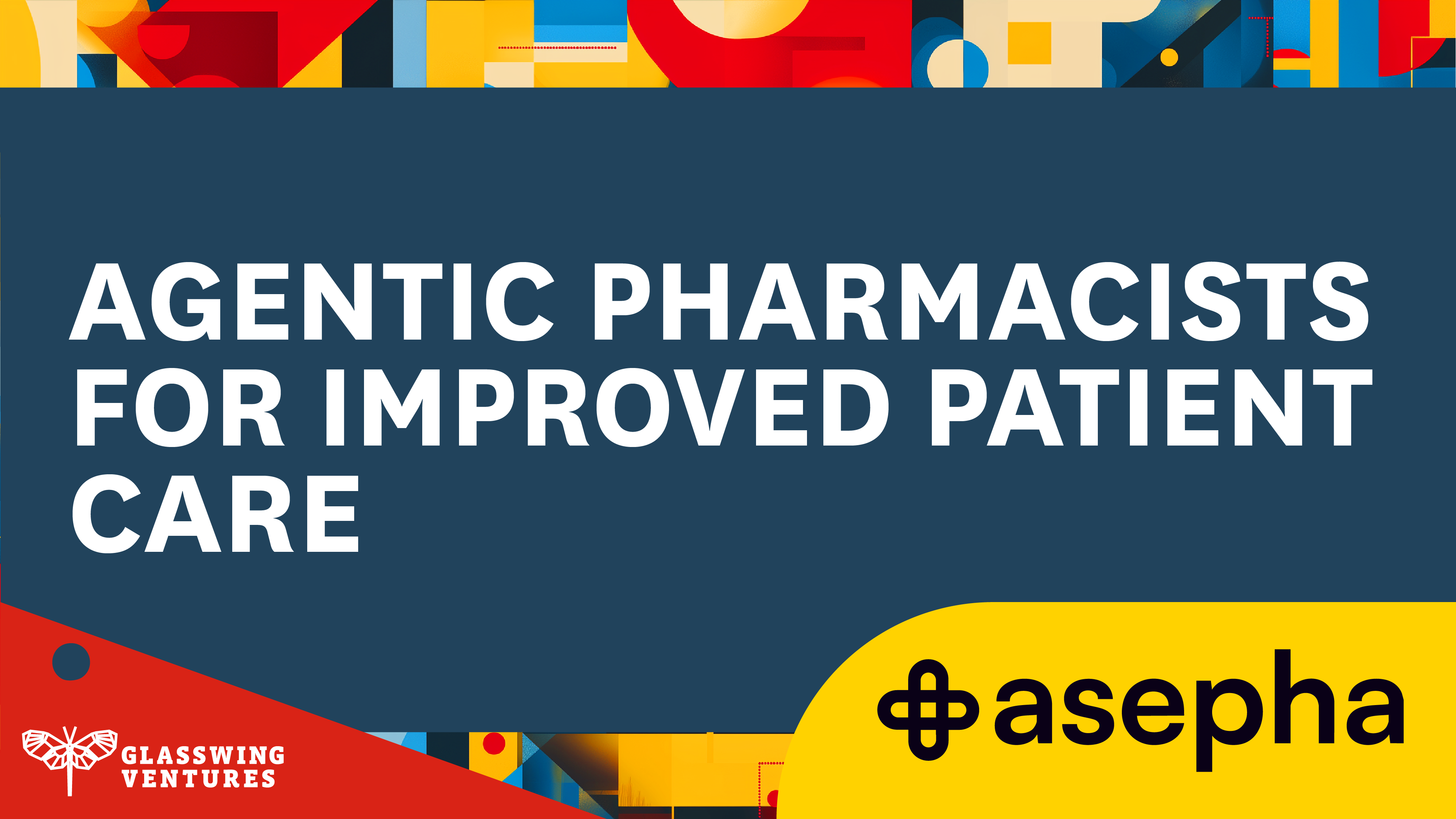
How Asepha is Transforming the Global Pharmaceutical Industry
Working as a pharmacist in Toronto, Canada, Eunice Wu noticed a bottleneck in pharmacy workflows – the pharmacists. Despite studying optimal patient care for six years, Eunice and her coworkers were spending most of their days on manual tasks, entering data into spreadsheets, filling out forms, and answering phone calls. As Eunice knew the number of prescription scripts were continuously increasing across the country, she predicted that the gap she witnessed between the number of scripts being written and prescriptions filled would only continue to expand, and the quality of patient care would decrease. So, she looked to artificial intelligence (AI) to remediate the problem.
Glasswing Ventures recently announced its Seed investment in Asepha, the AI-native clinical automation platform co-founded by Eunice Wu and Can Uncu that leverages AI agents to streamline prescription processing, medication reconciliation, and documentation for pharmacies globally. Asepha’s agents work alongside human pharmacists to reduce prescription processing time from minutes to seconds and improve the patient experience.
Three Pharmacy Workflow Hurdles Asepha Overcomes
1. Manual Data Entry
Problem: Before filling a prescription, pharmacists often need to enter data gathered from another provider into a spreadsheet and cross-check all of the information, ensuring the medication is safe for the patient. This manual process can take up to seven minutes per patient, drastically limiting the number of prescriptions pharmacists can accurately process in a day.
Solution: Asepha’s OCR & Data Entry Automation Agent reduces this prescription processing time by leveraging advanced computer vision and natural language processing to ingest prescriptions and other documents, extract key data fields, and automatically enter them into systems. The agents can parse handwritten scripts, faxed medication lists, and hospital summaries at a 98% accuracy rate, a percentage equal to that of a human. In doing so, Asepha’s agent reduces what can be upwards of a seven-minute processing time to only 15 seconds.
2. Care Continuity
Problem: When patients move from inpatient to outpatient care or switch doctors. However, this transition is often easier said than done. Their medication history also needs to move from system to system. During the transfer, some details may fall through the cracks and risks adverse drug events (ADE).
Solution: Asepha’s Medication Reconciliation and clinical intelligence engine ingests medication data from a patient’s pharmacy profile, hospital records, and prior care documentation to cross-verify and reconcile a patient’s medication list in one system. By automatically flagging discrepancies, the agent acts as a second set of eyes for pharmacists — one that never fatigues.
3. Patient Communication
Problem: Today’s pharmacists spend much of their day on the phone managing routine inquiries such as insurance and billing questions, and not getting to the questions that matter most. Not to mention that pharmacists are often interrupted while on these phone calls, which increases the chance for error.
Solution: Asepha’s Call/SMS agent acts as an AI pharmacy phone system that automates prescription refill calls, sends pickup notifications, and filters and escalates clinical concerns, so pharmacists can stay focused on delivering optimal patient care and make time for the conversations that matter most.
The Glasswing Perspective
Asepha has a vision for the future of healthcare — one where AI can help healthcare workers deliver more personalized care to patients of all income levels. We are proud to back Eunice, Can, and the rest of the team on their mission to transform specialty medication delivery and provide better patient experiences for all.
Learn more about Asepha here.